Atta Ur Rahman
FedSiKD: Clients Similarity and Knowledge Distillation: Addressing Non-i.i.d. and Constraints in Federated Learning
Feb 14, 2024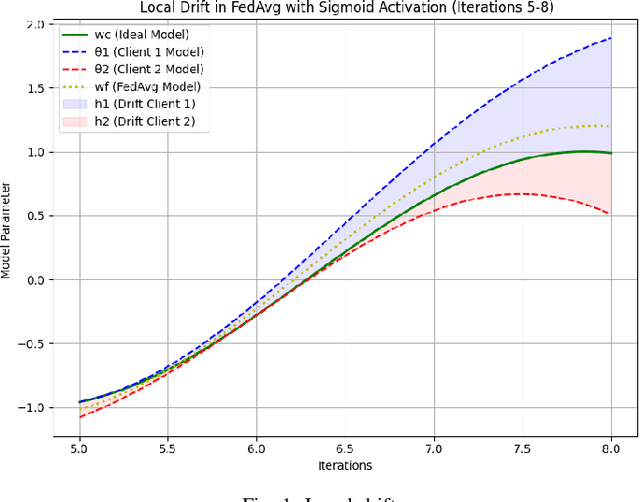



Abstract:In recent years, federated learning (FL) has emerged as a promising technique for training machine learning models in a decentralized manner while also preserving data privacy. The non-independent and identically distributed (non-i.i.d.) nature of client data, coupled with constraints on client or edge devices, presents significant challenges in FL. Furthermore, learning across a high number of communication rounds can be risky and potentially unsafe for model exploitation. Traditional FL approaches may suffer from these challenges. Therefore, we introduce FedSiKD, which incorporates knowledge distillation (KD) within a similarity-based federated learning framework. As clients join the system, they securely share relevant statistics about their data distribution, promoting intra-cluster homogeneity. This enhances optimization efficiency and accelerates the learning process, effectively transferring knowledge between teacher and student models and addressing device constraints. FedSiKD outperforms state-of-the-art algorithms by achieving higher accuracy, exceeding by 25\% and 18\% for highly skewed data at $\alpha = {0.1,0.5}$ on the HAR and MNIST datasets, respectively. Its faster convergence is illustrated by a 17\% and 20\% increase in accuracy within the first five rounds on the HAR and MNIST datasets, respectively, highlighting its early-stage learning proficiency. Code is publicly available and hosted on GitHub (https://github.com/SimuEnv/FedSiKD)
Enhancing Congestion Control to Improve User Experience in IoT Using LSTM Network
Sep 19, 2023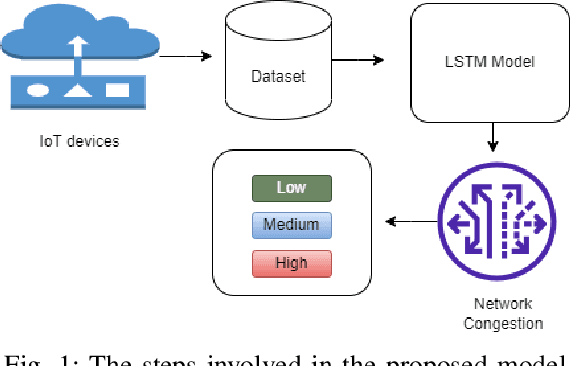
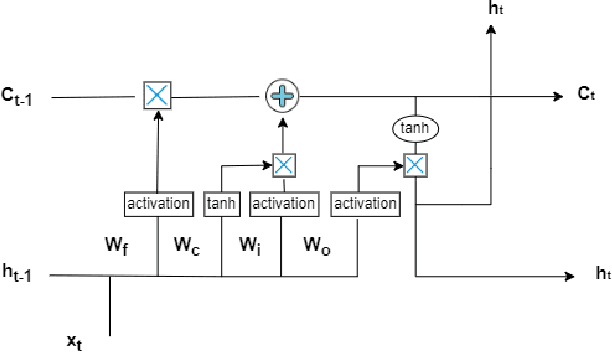
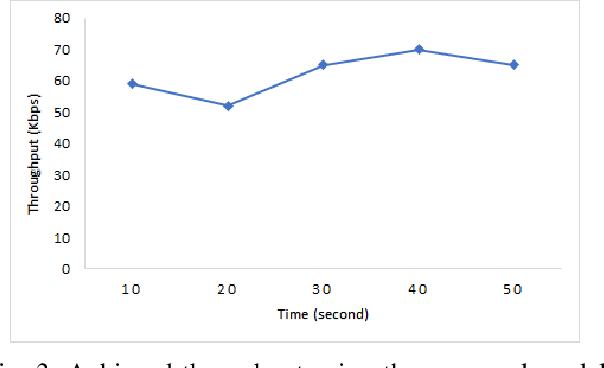
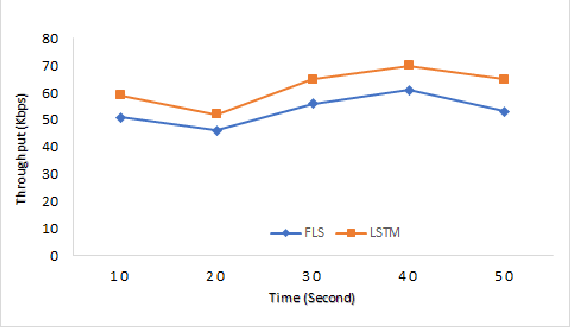
Abstract:This study suggests a new strategy for improving congestion control by deploying Long Short-Term Memory (LSTM) networks. LSTMs are recurrent neural networks (RNN), that excel at capturing temporal relationships and patterns in data. IoT-specific data such as network traffic patterns, device interactions, and congestion occurrences are gathered and analyzed. The gathered data is used to create and train an LSTM network architecture specific to the IoT environment. Then, the LSTM model's predictive skills are incorporated into the congestion control methods. This work intends to optimize congestion management methods using LSTM networks, which results in increased user satisfaction and dependable IoT connectivity. Utilizing metrics like throughput, latency, packet loss, and user satisfaction, the success of the suggested strategy is evaluated. Evaluation of performance includes rigorous testing and comparison to conventional congestion control methods.
 Add to Chrome
Add to Chrome Add to Firefox
Add to Firefox Add to Edge
Add to Edge